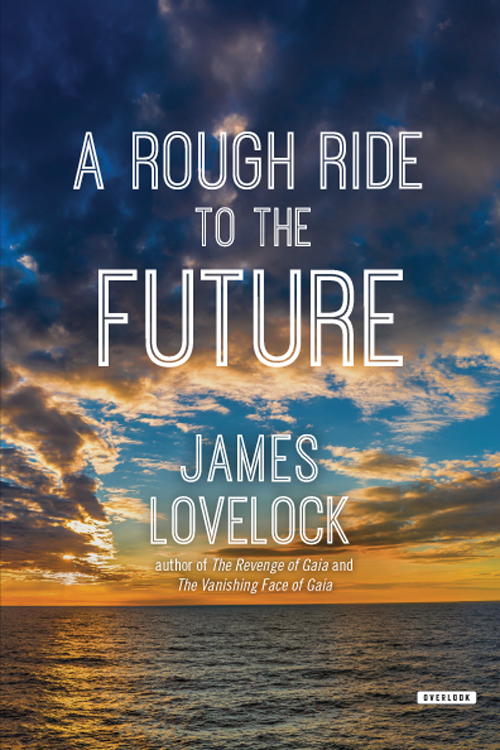
A Rough Ride to the Future
کتاب های مرتبط
- اطلاعات
- نقد و بررسی
- دیدگاه کاربران
نقد و بررسی

December 1, 2014
As one of the originators of the Gaia hypothesis, which emphasized “our irreplaceable value to the Earth” and its value to us, Lovelock (The Vanishing Face of Gaia) has written extensively over the years about the complicated relationship humans have with nature. In his latest volume, the Royal Society fellow offers further observations on “our old and familiar planetary home.” Striking a cautionary but measured tone and avoiding polemics, Lovelock warns readers about excessive industrial growth, global warming, “hunger in the face of an ever-growing population,” and constant shifts of market economics. These scare and confuse us, he says, making us feel “like a colony of red ants exposed when we lift the garden slab.” Lovelock also scatters throughout this slim narrative references to his long career in the U.S. and U.K. as a scientist and inventor “professionally qualified in physics, chemistry and non-clinical medicine.” This includes his work in the 1960s for NASA and the Jet Propulsion Laboratory in California, and his previous work on the Gaia hypothesis (originated in the 1970s). In this way, Lovelock’s book becomes not simply another look at Mother Nature’s uncertain future, but a revealing glimpse at the life of an outspoken and accomplished man of ideas.

December 15, 2014
A radical shift in thinking about climate change from Lovelock, the originator of the Gaia theory.Readers who devoured The Revenge of Gaia (2006) or The Vanishing Face of Gaia (2009) are familiar with the scientist/inventor who posited that Earth, or Gaia, is a closed, self-sustaining system whose balance has been disrupted. Where the outlook of his last book was decidedly gloomy, in this book, Lovelock takes a neutral, or even optimistic, look at climate change as part of Earth's constant and accelerating evolution. As gifted as ever at making complex scientific explanations understandable, the author can also turn an exquisite phrase. While he decries our collective "planetary diabetes," for instance, he also wonders if we aren't entering a time of evolutionary inflation, much like "a flute that changes its pitch when blown harder." However, in Lovelock's view, this isn't necessarily bad news. In fact, he suggests, the accelerating rate of invention that began with the steam engine and the accompanying, unprecedented flux of energy planetwide could cause humans to evolve into as-yet-unimagined life forms based on electronics. Some of the material here seems to be the stuff of science fiction, a genre Lovelock indeed credits for its inventiveness, yet the nonagenarian scientist has the experience and acumen to make a provocative case. He does wax overly nostalgic at times-a chapter devoted to his early career and many inventions could easily be expanded to a full autobiography and contributes only marginally to his present argument-but mostly, he's actively considering the future and how Earth, with or without humans, will cope with the changes to come. "Now is a critical moment in Gaia's history," writes the author. "It is a time of ending, but also a time of new beginnings." For those so inclined, this book is like getting Mother Earth News and Wired magazines in the mail on the same day.
COPYRIGHT(2014) Kirkus Reviews, ALL RIGHTS RESERVED.

February 15, 2015
Always the renegade, Lovelock, 94 and as brash as ever, has recanted his doomsday message in The Vanishing Face of Gaia (2009), but this wild, woolly, and lurching treatise is equally goading. Compelling and contradictory, Lovelock is most intriguing in autobiographical glimpses into his vast and varied experiences as an intrepid chemist and plucky inventor. He is convincing in his explanation of why he thinks humankind may have changed the Earth forever by burning fossil fuels, beginning 300 years ago with the first steam engine, and precipitating the phenomenally accelerated evolution of technology. Lovelace dismisses renewable energy as inadequate and asserts that the appalling threat of adverse climate change must be addressed with the sort of ferocity we bring to major wars. Perhaps, he suggests, we'll have to set democracy aside to quickly build gigantic, climate-controlled cities far from the rising seas. Perhaps we are destined to evolve into a new life form as we become one with the electromechanical and intelligent life we are now constructing. There is much to wrestle with in Lovelock's latest provocative rant.(Reprinted with permission of Booklist, copyright 2015, American Library Association.)

























دیدگاه کاربران